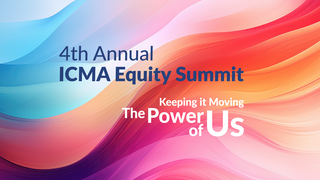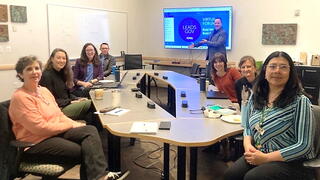
10 suggestions to consider

Join us for this virtual learning event focused on advancing racial equity in local government.

Financial aid is available to attend the upcoming annual conference in Pittsburgh.

Celebrate over a century of ICMA gathering local government professionals to exchange innovative ideas and learn from leading experts on how to improve processes.

Join ICMA for our 110th annual conference and celebrate more than a century of working to improve local government.

Planning a SheLeadsGov Virtual Forum watch party for staff in Louisville, Colorado, USA

Mental Health Awareness Month presents an opportunity to engage all levels in leading change.

How Tenet 11 evolved and maintains its relevance today

An innovative approach to mental health awareness among staff and in the community
